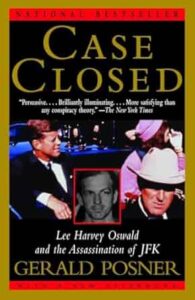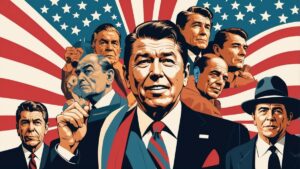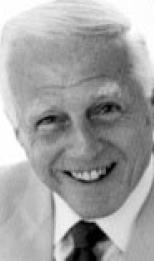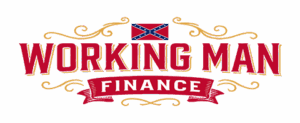Power, politics, and media are deeply intertwined in American history—but rarely is that connection as brazenly exposed as in the lives of Roy Cohn, Ronald Reagan, and publishing magnate S.I. Newhouse Jr.
In this post, we explore damning revelations from several underreported books that unveil a shadow network manipulating public perception, political power, and even presidential careers.
Each of these books opens a new window into the covert partnerships between government agencies, organized crime, and the so-called “free press.”
Roy Cohn and S.I. Newhouse: Media, Power, and Influence
Nicholas von Hoffman’s 1998 biography, Citizen Cohn gives us an intimate look at Roy Cohn’s connections to the upper and underworld.
Of particular interest is Cohn’s close friendship with S.I. Newhouse Jr., the billionaire owner of a media empire that included local monopolies in several cities.
Cohn reportedly bragged that in towns with only a Newhouse-owned newspaper, he could manipulate local narratives by calling in a favor. Von Hoffman wrote:
“The long, public association of Roy with the Newhouse name was to turn over to Roy the political power which such wealth and the ownership of such media properties bring.”
This network of influence wasn’t just about headlines.
Cohn once arranged a meeting between Newhouse and Senator Jesse Helms to redirect Jewish campaign donations from Helms’ opponent to the Senator himself—an apparent quid pro quo deal that flipped Helms’ long-standing America First position into pro-Israel advocacy.

The Newhouse Media Empire and the JFK Assassination
John Klotz’s 1995 article in Spy magazine goes further, claiming that for over 30 years, the Newhouse empire played a key role in suppressing dissent about the official story of JFK’s assassination.
One prominent example? Gerald Posner’s book, Case Closed, which strongly reinforces the lone gunman theory.
Published by Random House—formerly owned by Newhouse—the book became a mainstream hit.
Klotz raises a haunting question:
“What has driven Newhouse’s devotion to Kennedy cover-ups? What does Si Newhouse know and when did he know it?”
Adding fuel to the fire, Citizen Cohn connects Roy Cohn to Permindex, a shadowy company with alleged CIA ties and Israeli links.
Cohn was an investor, and CIA asset Clay Shaw served on its board.
Shaw was later prosecuted by New Orleans DA Jim Garrison for his role in the JFK conspiracy—only to be relentlessly attacked by The New Orleans Times-Picayune, another Newhouse publication.

Reagan, MCA, and the Mob: How Hollywood Made a President
In Dark Victory: Ronald Reagan, MCA and the Mob, crime writer Dan Moldea outlines how Reagan’s rise from actor to president was heavily influenced by mob-connected figures in Hollywood—particularly those within the Music Corporation of America (MCA).
Founded by Jules Stein, MCA evolved from a talent agency to a media powerhouse that eventually became Universal Studios.
Stein and his protege Lew Wasserman supported Reagan’s rise in both Hollywood and politics.
According to Moldea, Reagan even narrowly escaped indictment during his time as head of the Screen Actors Guild, thanks to backroom deals that benefited studio moguls and their criminal allies.
This deeply troubling history is often ignored in mainstream accounts of the 40th President’s life.

A Roman à Clef That Told Too Much
Before Moldea’s exposé, Henry Denker’s 1972 novel The King Maker fictionalized Reagan’s shady rise through the lens of insider knowledge.
Published by David McKay & Company, the novel features thinly-veiled versions of real people—Reagan as “Jeff Jefferson,” MCA as “TCA,” and Stein as “Dr. Irwin Cone.”
Despite its fictional format, the book was so revealing that Lew Wasserman labeled it “a piece of garbage.”
Perhaps not coincidentally, the book is now difficult to find, and was conspicuously absent from Denker’s obituary in The New York Times.
Denker wasn’t just making things up.
A real-life Hollywood figure named DeWest Hooker—who once managed Reagan’s account at MCA—served as inspiration for the book’s “Carl Brewster.”
Hooker later left MCA, citing disgust with its pro-Jewish political orientation.
This further supports the idea that the book’s insights were too close to the truth for comfort.
Why These Stories Still Matter
These interwoven tales show a side of American political history that is rarely explored.
The connections between media moguls, covert operations, and political puppeteering continue to shape the narratives we consume today.
Whether you’re researching media bias, the JFK assassination, or the manufactured myth of Ronald Reagan, these books offer a goldmine of evidence.
Each sheds light on the machinery behind the American dream—and how easily it can be manipulated.
DeWest Hooker and the Untold Backstory of America’s Political Theater
To further understand the shadowy networks that shaped Ronald Reagan’s political career—and how figures like DeWest Hooker fit into this mosaic—the works of Michael Collins Piper are indispensable.
In The Judas Goats: The Enemy Within, Piper profiles Hooker as a rare insider who recognized and resisted the infiltration of nationalist movements by Zionist and intelligence operatives.
Hooker’s break with MCA, largely over his unapologetic American nationalism and frank opposition to Jewish influence in Hollywood, is presented as emblematic of the deep ideological divide behind the entertainment industry’s political front.
Piper further expands on Hooker’s story in Confessions of an Anti-Semite, offering personal reflections on their friendship and Hooker’s behind-the-scenes role in managing Reagan’s early career.
These books provide critical context for understanding how media, intelligence, and finance intersected to manufacture American political icons—and why men like Hooker were erased from the narrative.

Unmasking the Power Behind the Curtain
From Roy Cohn’s manipulation of media narratives to Ronald Reagan’s mob-backed ascent, the truth about American power isn’t just hidden—it’s published in plain sight, if you know where to look.
These books are more than historical artifacts—they’re keys to understanding how influence really works in the shadows of politics and media.
